Jason Micheli's Blog, page 66
September 1, 2023
Five Propositions on Day of Prayer for Creation

Tamed Cynic is a reader-supported publication. To receive new posts and all content, consider becoming a paid subscriber.
Following the Orthodox Church, in 2015 Pope Francis announced that the Roman Catholic Church would recognize today as the World Day of Prayer for the Care of Creation. If we creatures of the sixth day are bidden to pray for our fellow creatures— every winged bird of every kind and every fish with which the waters swarm— then certainly the same faith invites us to pray for the stage, the earth itself, on which God has determined to make a Story with us all.
Words matter— always.
Words matter especially when it comes to matters that matter.
In this case— you’ve got to start somewhere— the church likely stands in need of more than a single day on the calendar to remember that the scriptures call it not nature or the environment but creation.
The name itself makes a claim.
It posits an Other.
As II Maccabees puts it: “Look at the heavens and the earth…and acknowledge that God made them.” The proposition became a rule of faith for Israel and so for the church. For Israel, creation is good as the arena for God to make his covenant with her. The church deviated from this proposition only by putting it more precisely. Thus, creation is done for the sake of Jesus Christ, who also, because Jesus preexists creation, works it.
Words matter when it comes to matters that matter.
In this case, it makes all the difference the newly hallowed day is Prayer for Creation and not Prayer to Creation. The distinction makes all the difference because, as the Bible attests quite clearly, the question before us is never, “Is there God?” but “Which god is God?” As creation, the earth is no more worthy of our worship than my neighbor who answers her calls in the driveway at two in the morning.
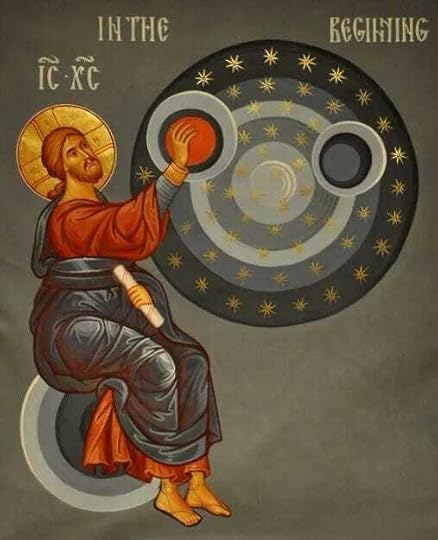
Since the sheer fact of creation itself became a rule of faith for Israel, following Robert Jenson, I offer a few propositions regarding the implications of God’s loquaciousness:
It’s Creation not Nature: That God creates means there is other reality than God and that it is really other than he. In other words, creation is not in any way an emanation from deity. It is gift not god, not more holy than the aforementioned neighbor and less so, actually, than water, wine, and bread. Put another way, there is no “Mother Earth” because Mary of Nazareth in Galilee bore God in the ark of her belly.
August 31, 2023
Vengeance: Love's Alleged Opposite

Tamed Cynic is a reader-supported publication. To receive new posts and all content, consider becoming a paid subscriber.
The lectionary epistle for this Sunday is Romans 12, in which the apostle exhorts his hearers to live in a manner that their life together might exemplify the word of the cross. “Do not repay anyone evil for evil…,” Paul writes, “beloved, never avenge yourselves, but leave room for the wrath of God.”
The biblical dialectic between love and vengeance or, analogously, peace and justice underscores the problem with slogans. “God is love” may be an indispensable slogan only if by it the slogan refers to whole narrative of God’s history with Israel, culminating in Christ’s life, death, and resurrection— all grasped in God’s saving intent.
Unfortunately, the slogan “God is love” rarely functions as a summation of the history God makes with his people. And nowhere is this omission more evident than we think about love’s alleged opposite, vengeance.
August 30, 2023
The Making and Unmaking of the World

Tamed Cynic is a reader-supported publication. To receive new posts and all content, consider becoming a paid subscriber.
Here is the latest session from our online study of the Apocalypse. This week Kelly, Todd, the Minion and I worked our way through Revelation 2-5.
If you’ve got questions or thoughts, drop them in the comments or shoot me an email.
August 29, 2023
"Nobody Ever Drifts toward the Gospel"
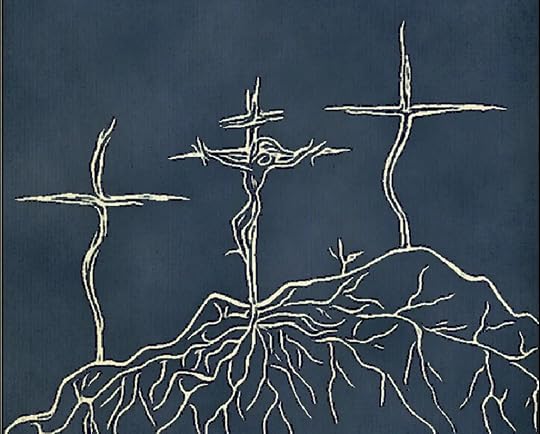
Tamed Cynic is a reader-supported publication. To receive new posts and all content, consider becoming a paid subscriber.
The crew at Speakeasy Theology (Chris EW Green, Chris Brewer, and David Harvey) invited me to come on their podcast to talk about my new book, A Quid Without Any Quo.
You can find the book here.
You can check out their work here.
August 28, 2023
The Trinity at the Burning Bush

Tamed Cynic is a reader-supported publication. To receive new posts and all content, consider becoming a paid subscriber.
Exodus 3.1-15
It is perhaps not immediately obvious that this Sunday’s Old Testament lectionary text, in which the Maker of heaven and earth encounters Moses at the burning bush, displays an instance of the doctrine of the Trinity.
Scripture knows no other instantiations of its doctrines than the kind we find in Exodus 3. That we do not so see the story of the burning bush as an icon of the Trinity simply reveals the extent to which the church has accepted modernity’s limitations on the formulations of doctrine.
Typically, the church attempts to justify its dogma by conceding that the Trinity is not itself displayed by the Bible but that the conclusions of the church’s creedal councils are nevertheless the legitimate development of claims that are in the Bible. This concession is incorrect. The doctrine of the Trinity is not only, “in the appropriate fashion,” displayed in the Bible but it is so most especially in what Christians will deem the most unlikely place, the Old Testament.
If we pose the doctrine of the Trinity as a propositional truth claim, set forth in rational terms and stripped down to the barest of logic, then, of course, the Trinity is not in the Bible. But such formulations are antithetical to the character of scripture.
Scripture— for the church—is narrative.Both the early church and rabbinic Judaism added a second volume to the scriptures which initially were the sole authority for both communities. To the Old, the church added the New Testament. To the Hebrew Bible, the rabbis added the Mishna. The former is primarily narrative (the Gospels) with occasional commentary upon those narratives (the Epistles) while the latter is Israel’s tradition or oral Torah. Because of the narrative form of the New Testament, the church has read its entire scriptures as story. Because of the form of the Mishna, rabbinic Judaism reads the Tanakh as law.
For Christians then, scripture hangs together as a single story of God’s history with his people, from the Beginning to Fulfillment. Now, if scripture is fundamentally narrative in genre, the church must abandon modernity’s prejudices about the propositional character of doctrine. The Bible largely avoids revealing the true God through truth claims like “God is merciful” or “The Lord is loving.” Rather than such rational assertions, the form of scripture begs the question, “How would a story display the reality of God?” How could a story show that God is loving or merciful without asserting that he is such and such?
Just so, how would a narrative reveal that God is three persons?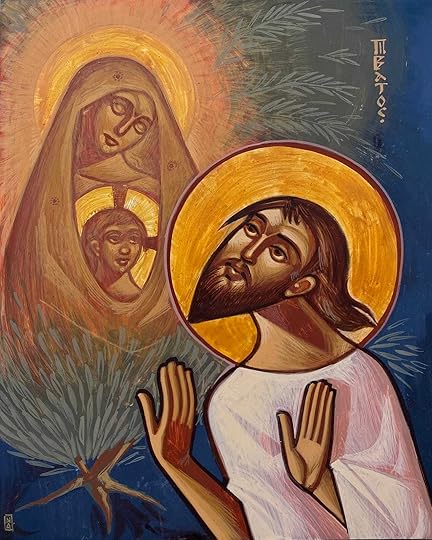
From the very beginning, the Father and the Spirit are straightforwardly two dramatis personae in the Old Testament, but what of the third person? “The Son’s presentation in the Old Testament,” Robert Jenson writes, “is even more clearly a matter of a plot-structure displayed both by the Old Testament’s total narrative, and by many of its individual incidents.”
For example, look again to Sunday’s lectionary story. Take note how the story, much like the Akedah in the Genesis 22, displays the reality of God.
It’s the angel of the LORD who first summons Moses to the burning bush: “There the angel of the LORD appeared to him in a flame of fire out of a bush (verse 2).
But the angel of the LORD next self-identifies as none other than the LORD: “When the LORD saw that he had turned aside to see, God called to him out of the bush, "Moses, Moses!” (verse 4.
Finally, it turns out, the LORD has called Moses to the burning bush precisely to identify which God he is and to reveal to Moses his personal name: “I am the God of your father, the God of Abraham, the God of Isaac, and the God of Jacob…I AM WHO I AM. He said further, "Thus you shall say to the Israelites, 'I AM has sent me to you”” (verses 6-14).
The encounter at the burning busy demands a question:Is the angel of the LORD simply the same one as the LORD?Or, is the angel of the LORD an identity different from the LORD in the LORD’S own identity? Certainly, the answer must be that he is both.August 27, 2023
You Thought God was an Architect

Tamed Cynic is a reader-supported publication. To receive new posts and all content, consider becoming a paid subscriber.
Revelation 10.1-11
In the darkest days of apartheid, when no one thought apartheid could ever be dismantled without a bloody revolution, Archbishop Desmond Tutu insisted not only that the God of the Bible— not the Principalities and Powers— sovereignly determines history but that God’s people are how God happens in the world.
On this basis, Tutu dared to live as though he had an invisible army behind him.
On one occasion, the bishop, with a large band of demonstrators and activists, attempted to meet with officials of the South African government.
In the language of the Apocalypse, bishop Tutu prophesied “over many peoples and nations and tongues and kings.”
The black bishop speaking to the white rulers was not permitted, so protestors proceeded to the cathedral where they proceeded to offer a sacrifice of praise and thanksgiving.
At the service of worship, Bishop Tutu preached.
He proclaimed the word of God for the people of God:
“I am a bishop in the Church of God, I am 51 years old, yet I don’t have a vote…Well, they can remove Desmond Tutu. They can end the South African Council of Churches. But the Church of God goes on. The government must know that the Church is not frightened of any earthly power…More are for us than can ever be against us. A vast throng no one could ever count, from every nation and every tribe, standing before the throne and before the Lamb, robed in white and bearing palm branches in their hands, shout together, Victory to our God! We are joined with angels and archangels and the whole company of heaven.”
While Tutu preached, standing ranks of policeman lined the walls of the church, keeping a wary eye on the protest.
Suddenly, in the middle of his sermon, Tutu looked directly at the police— the cops who were determined to keep apartheid in its place by any means necessary— and he declared to them:
“You have already lost! You have already lost! Come over here to us! Join us! Don’t you see, we are inviting you to come and join the winning side! Don’t you understand? It’s the knowledge that in Jesus Christ we have already won that makes our nonviolent witness possible.”
You have already lost!
Indeed, in proclaiming the gospel in the face of apartheid, apartheid was, in fact, already ended.In the speaking of it, it was already just so.
Or, as the Second Helvetic Confession puts it, “the Preaching of the Word of God is the Word of God.”
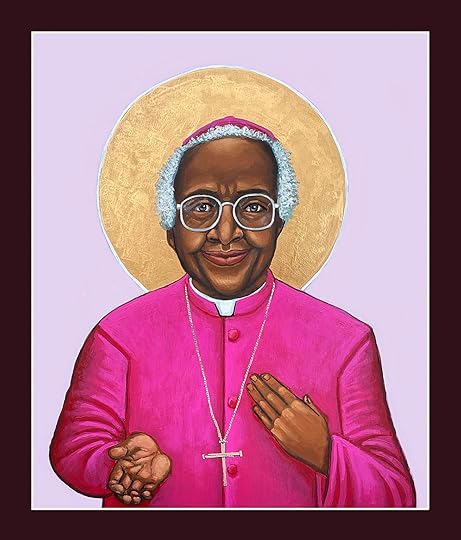
Immediately before our text, at the end of the constricting terrors of the trumpet blasts, the earth’s inhabitants appear caught in a self-perpetuating cycle of idolatry and deceit from which, humanly speaking, there is no hope of deliverance. There is no escape from what binds them, the Spirit of Jesus revealed to John. There is no escape because humanity seeks the solution to its plight in the very powers which enslaves them, barren deities and their lies. With the fifth and sixth trumpet blasts, the Seer learned that the world’s liberation from this enslaving cycle of fiction and violence will require nothing less than an act of God.
Nothing that is possible can save us.
And this impossible act, this act of God is surprising.Take and eat and speak.At least, this act of God is surprising to anyone whose notions of deity are not shaped by the scriptures.
First, the Seer sees an angel incomprehensible in his almightiness. All the angel’s features echo images already shown to John. Clouds enshroud him. His face shines as the fulfillment of Aaron’s priestly blessing. The rainbow— the sign of the Lord’s pledge to Noah never to destroy his creation again— hangs above his head. Like the Colossus of Rhodes, the angel stands astride land and sea, one foot on the earth and the other foot on the water. Not in the water. Like Jesus before Peter, he stands on the sea.
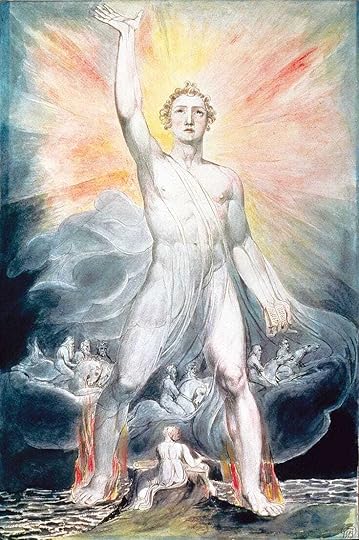
The artist William Blake rendered the almighty angel as a naked and virile young man who so towers over the prophet he blocks out the sun in the sky. Blake painted a pen in the angel's hand and fire around his feet.
The angel looks like the voice— the angel looks like the voice— that John saw at the beginning of the Apocalypse.
It’s not surprising then that church fathers like Primasius asserted that the almighty angel who appears to John after the fifth and sixth trumpets is none other than “the Lord Christ descending from heaven.”
That this almighty angel of the Lord is the Lord Jesus is not without warrant.After all, in the Old Testament, nearly six centuries before Mary carries him in the ark of her belly, Ezekiel sees Jesus, the Christ, seated on the cherubim throne, and the prophet promptly receives from the Lord Jesus the same little scroll the angel hands over to the prophet John. According to the Book of Ezekiel, the little scroll announces “that which was from the beginning and that which is destined to be in the End.” That is, the little scroll announces everything, from Alpha to Omega, the all that will be all in all.
On the one hand, the little scroll is overflowing.Atypically, the scroll handed over to Ezekiel and John both bears writing on both its sides, front and back. You do not write on both sides if you have to roll it up. But for this scroll, there is no white space. It’s packed to the margins, as though there is no end to what could be said about what must be said.
In other words, the implications of the promise are plenitudinous.On the other hand, the overflowing scroll is little.The Lord Jesus instructs John not to write down everything he sees and hears. “The thunders spoke in their voices,” John reports. “Do not write that down,” the angel— Jesus— implores the prophet, as though not everything we could say about God is what must be said for God.
In other words, its implications might be plentiful— infinite, in fact— nevertheless the promise is precisely particular.As Calvin’s Geneva Bible notes, the little scroll is “the Gospel of Christ, which the Antichrist cannot hide, seeing Christ bringeth it open in his hand.”
Thus, the scroll is not all of scripture. The scroll is little. The scroll is the gospel. And it is a little word. Any way you put it, it makes for a meager sentence.
Christ is risen.
Done for you.
Jesus is Lord.
You have already lost!
Your sins are forgiven.
Jesus lives with death behind him.
Because he lives, so shall you live.
You are justified in Christ alone, by grace alone, through faith alone.
Apart from works!
Any way you put it, it is a small word. It may prove a stumbling block; you may choke on it. But it is sufficiently small to swallow.
The angel of the Lord who is the Lord Jesus beckons the prophet to take this little word (for you— that’s as small as I can make it), and feed on it and then serve it up for the peoples and the nations and the kings.
Once again, with the fifth and sixth trumpet blasts, at the end of the ninth chapter of the Apocalypse, John sees that the world has no hope apart from a direct intervention by God.
Just what is that surprising, miraculous, gratuitous act of God?
The Risen Jesus appears to John in glory.
And he hands over the goods, the little word of the gospel in which he gives himself.
“Eat me,” he commands, “And go and speak.”
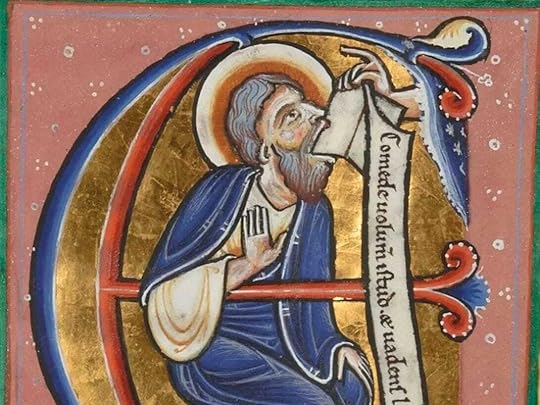
I heard Jim Nestingen lecture on the gospel at an event years ago, and during his presentation he shared a story about how he’d been traveling long hours and many miles from conference to conference.
“As the plane was taking off,” he said, “the guy sitting next to me asked what I did for a living. I said to him, “I’m a preacher of the gospel.” Almost as soon as I got the words out, he shouted back at me, “I’m not a believer!”
“But the man was curious,” Jim said in his presentation:
“Once we got to cruising altitude, he started asking me about being a preacher. After a bit, he started telling me stories about the Vietnam War. He’d been an infantryman in the war. And he’d fought at all the awful battles and done the terrible things his country required of him. This went on the whole flight, from coast to coast, him giving over to me all the awful things he’d done. As the flight was about finished, I asked him. I said to him, “Have you confessed all the sins now that have been troubling you?”
“What do you mean confessed?! I’ve never confessed” the man replied.
“You’ve been confessing your sins to me this whole flight long. And I’ve been commanded by Christ Jesus that when I hear a confession like that to hand over the goods I’ve received and speak a particular word to you. So, you have any more sins burdening you? If so, throw them in there.”
“I’m done now,” the man next to him said, “I’m finished.”
“So I unbuckled my seatbelt and I unsqueezed myself from my chair,” Nestingen said, “and I stood up. The stewardess then— she starts yelling and fussing at me, “Sir— SIR— you can’t do that. Sit down. You can’t do that.”"
“Can’t do it?” I said to the stewardess. “Ma’am Christ our Lord commands me to do it.”
“And she looked back at me, scared, like she was afraid I was going to evangelize her or something. So I turned back to the man next to me and, standing up over him, I put my hand on his head and I said, “In the name of Jesus Christ and by his authority, I declare the entire forgiveness of all your sins.””
“You— you can’t do that.”
He whispered to me.
“I can do it. I must. Christ compels me to do it, and I just did it and I’ll do it again.”
“So I gave him the goods again. I tipped his head back and I spoke faith into him, and I did it loud for everyone on that plane to hear it. And just like that,” Nestingen said, “the man started sobbing… like somebody had stuck him. Soon his shirt was wet from all his weeping and I held him in my arms like I’d hold a child.”
After the guy stopped weeping, he laughed and wiped his eyes and he said to me, “Gosh, if that’s true, it’s the best news I’ve ever heard.”
When I thought the story was over, Jim started to cry all over again and he said, “After the plane had landed, I handed my business card to him. I told him, “If you get hungry for that word in the future, call me and I’ll hand it over all over again.”
And then Jim laughed a big, deep laugh and said:
“Wouldn’t you know it. He called me every day— every day— just for me to serve up the little word of the gospel to him. So I did, every day until he died— I wanted the last words he heard in this life to be the first words he would hear Jesus himself say to him in the next life. That way, in the future he will discover he’d already met Jesus in his past— he got him in his word.”
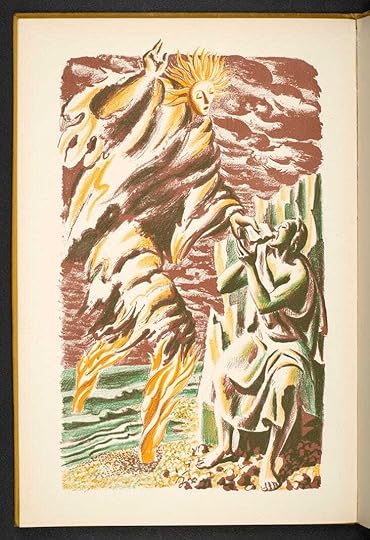
At the Lord’s command, John, like Ezekiel before him, eat the little scroll and, just so, God commissions them as prophets.
Before you conclude that this “drastic sacramental reception” does not also apply to you, remember that, according to Acts 2.16-18, the entire church, and so also Israel, is a single prophetic community.
This commission holds for us as much as it applies to John or Ezekiel; consequently, this passage “sets us deep within the mystery of history” and it forces us to repent of our pagan misapprehensions about the reality of the true God.
The true God is triune.
The true God is Father, Son, and Holy Spirit.
God is Father, Jesus, and Holy Spirit.
And Jesus is the word made flesh.
Jesus just is a word with body and blood.And because Jesus, as the creed attests, is “of one being with the Father,” the Father and the Spirit are likewise words.As the theologian Peter Brunner writes:
“In view [of God’s triune nature]…we must abandon all pictures of God that with the help of Plato’s mode of thought read into God a fixed, unmovable, and abstract perfection.”
According to the rule of faith, the doctrine of the Trinity demands two primary propositions.
Firstly, God is an event.God is not a static being. God is no more Aristotle’s Unmoved Mover than God is the Man Upstairs.
Nor is God a timeless, ineffable mystery far beyond in a reality to which the Bible can only point.
God is an event.
The kind of reality God has is like that of a kiss or a car accident or water washing over a child.
As Jason Isbell sings, “You thought God was an architect, now you know/He’s something like a pipe bomb ready to blow.” “24 Frames” is more theologically precise than “Immortal, Invisible, God Only Wise.”
According to the rule of faith, that God’s proper name is Trinity demands a second proposition; specifically, God is a particular sort of event, a verbal event.God is discourse, an exchange not a lecture.Conversation, address and reply, call and response.
The Lord is his loquaciousness.
As Robert Jenson writes,
“It was the first deliberate dogma of Christianity, by which the faith forever defined its difference from other religions, that with Christianity’s God there is no silence from eternity, that we do not lose our voice and ears as we approach him, that he not only has a word for us— which is eccentric enough in the world of religion— but is his word for us…
The conversation that is God is not a conversation in heaven— at least, if by heaven we mean some other place than earth. The conversation that is God is the proclamation of the law and the gospel. Wherever human discourse occurs which opens human life to the last future, there is the occurrence of God.”
As mind-bending and mysterious as all this may sound, it is the plain teaching of Jesus, “Wherever two or three are gathered together in my name, there I am in the midst of them.”
It’s astonishing indeed but this teaching so saturates Christianity we seldom notice it. Paul puts it straightforwardly at the top of his letter to the Romans, “For I am not ashamed of the gospel. It is God at work [in the world.” This is why she who will be Jesus’s spouse, the church, is simultaneously also his body. The church is the body of the Risen Jesus precisely because the church is the location of the verbal event that is God. This is why, for example, to ask whether the water or the bread and the wine are just symbols misunderstands not only baptism and communion but misunderstands the reality that is God.
God is his word for us.Thus, the verbal event that is God necessarily includes us.Again, as mind bending and mysterious as this may strikes us, it is the straightforward teaching of Jesus, who commanded that we pray to his Father as our Father.
He listens to us.
Exactly because the Father loves the Son, he listens to his Son’s bride.And this is the way in which our passage forces not only to repent of our pagan notions of God but also sets us deep within the mystery of history.
That Jesus is a word with a body and blood, that God is a colloquy that includes us means that the prophetic community’s prayers and praise and proclamation are the events by which God happens in history.
Make no mistake, this means nothing less than that God sovereignly determines history but that God determines history not by arbitrary decisions in heaven but by deliberating with us. “Go and preach to the nations and kings,” the Lord commissions John; just so, history.
God determines history by listening to us about how that history should go.This means not only that God is responsible for the history he makes but also that God is on the hook— morally speaking— for choosing such unreliable partners as people like us.
Hence Martin Luther’s forthright maxim:
“If we look at how God governs history and judge by any standard known to us, then we must conclude either God is wicked or God is not.”
But any understanding of how God happens in the world that does not produce something like Luther’s maxim is not the claim made by the scriptures. As Jenson puts it in frank either/or terms,
Either prayer and praise and proclamation are absurd. Or they are “nothing less than our permitted mixing into the triune deliberation we call providence.”By our baptisms, we are invited to address God as the spouse of his Son, we are invited to offer opinions as to how he run his affairs, and we are invited even to speak for him in such a way that our speech for him is him.

At the end of his story, as Jim Nestingen recalled his coast-to-coast flight, he started to weep.
He remembered the reaction of the passengers and crew as he handed over the goods.
He said:
“The stewardess and all the rest who’d been freaking out and fussing at me for standing up on the plane— when I handed over the goods to the guy, they all stopped and became as silent as dead men. They knew something more important was happening right in front of them— something more important. This man’s life was breaking open. The Future was intruding upon his past. The old world was being unmade. Jesus Christ was raising this man from the dead right in front of them, and even if they didn’t know it to put it that way, they knew that they were seeing God in front of their eyes.”
You’ve already encountered him in water.
You’re about to eat him in creatures of bread and wine.
So, dare to trust and believe: That I offer you these words in the name of the Father, Son, and Holy Spirit and that you receive them saying amen, here— right now, graciously so— is our God.
 Read Tamed Cynic in the Substack appAvailable for iOS and AndroidGet the app
Read Tamed Cynic in the Substack appAvailable for iOS and AndroidGet the app
August 25, 2023
The Bible Happens Now

Tamed Cynic is a reader-supported publication. To receive new posts and all content, consider becoming a paid subscriber.
I’m preaching on Revelation 10 this coming Sunday, a passage with a precursor in the initial part of the prophet Ezekiel:
Then the voice that I had heard from heaven spoke to me again, saying, ‘Go, take the scroll that is open in the hand of the angel who is standing on the sea and on the land.’ So I went to the angel and told him to give me the little scroll; and he said to me, ‘Take it, and eat; it will be bitter to your stomach, but sweet as honey in your mouth.’ So I took the little scroll from the hand of the angel and ate it; it was sweet as honey in my mouth, but when I had eaten it, my stomach was made bitter.
It’s an image that recurs in both testaments. God elects a prophet to ingest scripture so that the saying of scripture might become God’s chosen means of self-revelation to the world.
The image impacts how we understand the nature of God’s presence and activity in the world; the image also frustrates any attempts to conceive of the Bible as a historical record of God’s speech in the past.
The saying of scripture just is God’s word in the world. And, as all of God’s attributes are reducible to one another, God’s word in the world just is God’s work in the world.Because I had recently become a Christian, I enrolled in a New Testament studies course during my first year as an undergraduate at the University of Virginia. Our guiding textbook was Bart Ehrman’s The New Testament: A Historical Introduction to the Early Christian Writings. I recall one stuffy fall afternoon when the teaching assistant for our precept group (who happened to be a clergyman) explained that we would investigate the Christian scriptures as though they were no different from any other historical document or work of literature. “We’ll be reading and studying the New Testament the same way they’ll approach Beowulf down the hall from us.”
His comment about Beowulf sticks in both my memory and my craw because it ignited a small rebellion among my evangelical classmates, who resisted the idea of reckoning with scripture the way one would any other historical document. I also recall the titters of patronizing laughter set off by one classmate’s protest: “But it’s not like the Iliad; it’s God’s Word.”
At the time, I was new to Christianity. Only much later did I learn that a workaday pastor who deals with biblical texts in pulpit, prayer, and pastoral calls needs to develop a second naïveté with regard to scripture. Only then did I realize that my evangelical classmates in college had been right to push back against our teacher.
Ehrman’s historical-critical work exemplifies the dominant approach to the study of scripture in mainline churches today. From Marcus Borg and John Dominic Crossan to Rob Bell’s What Is the Bible? to N. T. Wright’s critical realism, the horizon of history determines the meaning of scripture. But to interpret scripture exclusively according to historical situation, cultural context, and linguistic nuance not only collapses scripture’s meaning into what it meant, it also assumes that history is sufficiently knowable to reveal scripture’s meaning. Even more problematic, it eclipses the belief that God is still the living agent of revelation. What scripture means is not reducible to what scripture meant. Scripture does not merely contain testimony of the times when God spoke; scripture is the plane on which God yet chooses to speak.
August 24, 2023
What the Therefore is There For

Tamed Cynic is a reader-supported publication. To receive new posts and all content, consider becoming a paid subscriber.
The lectionary epistle for this coming Sunday is from the twelfth chapter of Paul’s Letter to the Romans.
To better understand this oft misunderstood passage, pay attention to the passive voice here:
“Our society is broken, pretty much, but there will be a time when these times will be made right.”
“…these times will be made right” said the principal of Goose Creek High School in Charleston, South Carolina.
“…these times will be made right” he said just days after Dylann Roof stormed into Mother Emmanuel AME Church and shot 9 parishioners gathered for Bible study. One of the nine victims was the track coach at Goose Creek High School.
“…these times will be made right.”Which is to say, despite the brokenness we can see everywhere an unseen agency is at work, making right.Or as Paul would say, rectifying.
Only four days after Dylann Roof stormed into Emmanuel AME and left six black women and 3 black men in a bloody pile in the church basement, the leaders of the congregation concluded the only way to press forward was for them to go back to exactly what they’d done before, to do the Sunday after that shooting what they had done the Sunday previous.
Worship the Lord Jesus Christ.
Proclaim the Gospel, the Gospel which Paul says is the rectifying power of God unleashed in our world (1.16-17).
Preaching that Sunday at Mother Emmanuel AME Church, Reverend Norvel Goff, an elder in the African Methodist Episcopal Church, proclaimed:
“Through our proclamation of the Gospel on this day a message will be sent to Satan.”
Note the passive voice again: “through our proclamation…a message will be sent.”
The worshippers at Emmanuel Church were not the ones sending the message.
Later in his sermon, his voice roaring, Reverend Goff added:
“Something wants to divide us— black and brown and white— but no weapon formed against us shall prosper.”
Notice, he didn’t say Dylann Roof wanted to divide us. He didn’t say racists and bigots want to divide us. Something wants to divide us— there’s another agency at work in the world. Speaking of that other agency, that same Sunday, outside the church, the Reverend Brandon Bowers, who is white and the pastor of Awaken Church, said:
He said Enemy with a capital E. Even the NY Times caught it. And he did not say we’re using this for good.Pay attention to the passive: “God is using us for good.”We’re being used by God for good.“What the Enemy intended for evil, God is using- God is using us- for good.”
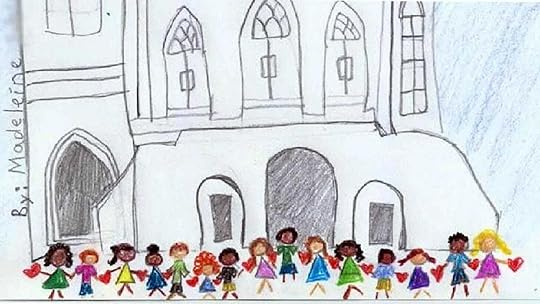
The service at Mother Emmanuel AME Church began with a hymn: “You are the Source of my strength, you are the strength of my life.” Meanwhile, while they sang at Emmanuel AME, the family of 21 year old Dylann Roof worshipped at St. Paul’s Lutheran Church in Columbia, South Carolina. The pastor of St. Paul’s read the names of the victims and the congregation prayed for them and their families. The victimizer’s family prayed for the victims and their families.
About the victimizer’s family, the pastor of St. Paul told his congregation later, “They are shattered but through their faith they are being made strong.”
“…they are being made strong.”
“…these times will be made by right.”
Pay attention to the passive:
“I appeal to you therefore, brothers and sisters, by the mercies of God, to present your bodies as a living sacrifice…Do not be conformed to this world, but be transformed by the renewing of your minds… Let love be genuine; hate what is evil, hold fast to what is good; love one another with mutual affection…Do not lag in zeal, be ardent in spirit… Rejoice in hope, be patient in suffering, persevere in prayer…Bless those who persecute you; bless and do not curse them…do not be haughty…do not claim to be wiser than you are. Do not repay anyone for evil…if your enemies are hungry, feed them; if they are thirsty, give them something to drink…overcome evil with good.”
“I appeal to you therefore…by the mercies of God…do not be conformed… but be transformed by the renewing of your minds.”
If you don’t understand what the therefore is there for, not only do you miss Paul’s point here you mishear this passage as bad news instead of good, as burdensome rather than freeing.
August 23, 2023
Jesus's Body
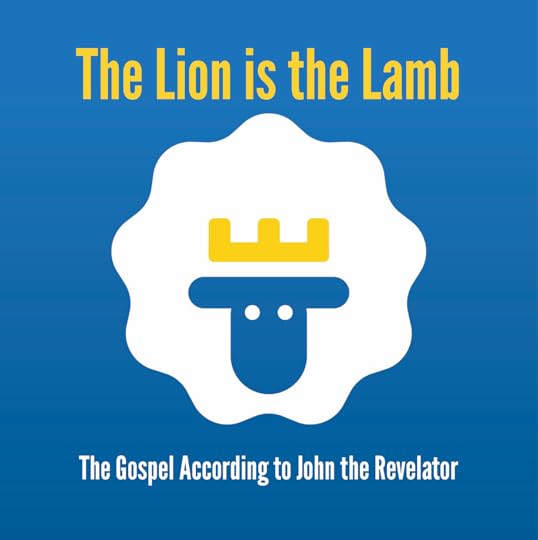
Tamed Cynic is a reader-supported publication. To receive new posts and all content, consider becoming a paid subscriber.
Hi Friends,
Here is Monday’s session, number two of…who’s to say. Our friend Kelly joined us a panelist. Together with Josh and the Minion, we discussed the opening chapter of the Apocalypse.
To join us live, you can still sign up here.
If you have questions for us to consider in the future, drop them in the comments or shoot me an email.
August 22, 2023
Gospel Freedom According to Galatians

Tamed Cynic is a reader-supported publication. To receive new posts and all content, consider becoming a paid subscriber.
My friends Teer Hardy (sign up for his Substack) and Will Willimon, recorded a conversation about my new book A Quid Without Any Quo: Gospel Freedom According to Galatians.
You can order the book HERE.
Once again, here’s Will’s introduction to the book:
Jason Micheli is a good enough Bible scholar and theologian to know that Paul’s Letter to the Galatians is a bomb planted in the middle of the church. In this book, Jason as pastor and preacher is reckless enough to light the fuse.
Jason is not only a fine writer (see: Cancer is Funny) and engaging preacher (one commentator said that listening to Jason is like drinking water from a fire hose), Jason is also one of our best Christologically informed readers of scripture.
Keep ever before you, as you read this book, that it’s written by a Methodist, a pastor of a denomination that unashamedly took as its slogan, “Making Disciples for the Transformation of the World.” You ask, Is there no limit to contemporary Methodism’s conceit and self-deceit? Not much. Thus is Jason’s book a cheerful but clinch-fisted protest against about ninety percent of Methodist sermons that I hear and too many that I preach. In a church that’s being decimated by overly earnest me-love-Bible-more-than-thou “traditionalists” and trendier-than-thou “progressives” (both groups hell bent on autosalvation) Jason calls us to worship the odd sort of God who would die for sinners, only sinners.
Paul attempts to help the first Christians in Galatia deal with the shock that God really is in Christ doing for sinners – some whose sin is in their goodness – what they can’t do for themselves. Jason thinks that the best thing the church can do for the world is exuberantly to announce who God actually is and what God is up to in the world – God is in Christ reconciling the world to God. And the best thing that the world can do is to relinquish their attachment to “religion” for the freedom of allowing ourselves to be loved by the God who, though we didn’t know how to love, died for us anyway.
No preacher or pastor can read Jason’s quite wonderful Galatians inspired theological frolic without being encouraged (or shoved) to talk about the God who is for us rather than the godlet who is a divine personal trainer. Any of the baptized who read this book will be theologically rejuvenated to by Jason’s reminder of the adventure of life with so interesting a savior. And anybody who doesn’t know much about the faith will be startled that Jesus is even odder than they thought.
After reading Jason’s book, I announced to my fellow Methodists: you have messed up in so many ways and have squandered your sola fide inheritance for Mother-I’d-Rather-Save-Myself sermons. But one thing you did right. You didn’t hinder God from producing one wildly entertaining, faithful preacher who really gets the outrageousness of the gospel and is bold enough to tell us all about it.
Will Willimon
Jason Micheli's Blog
- Jason Micheli's profile
- 13 followers



